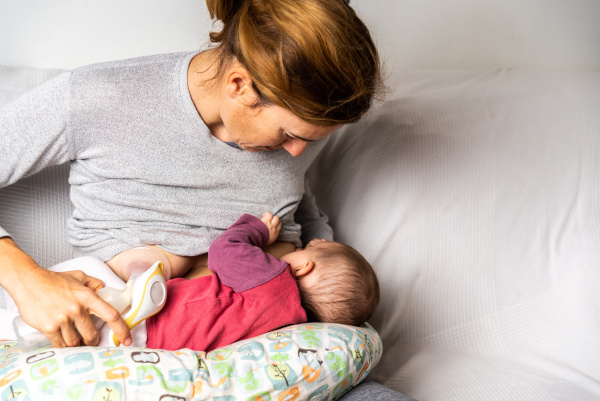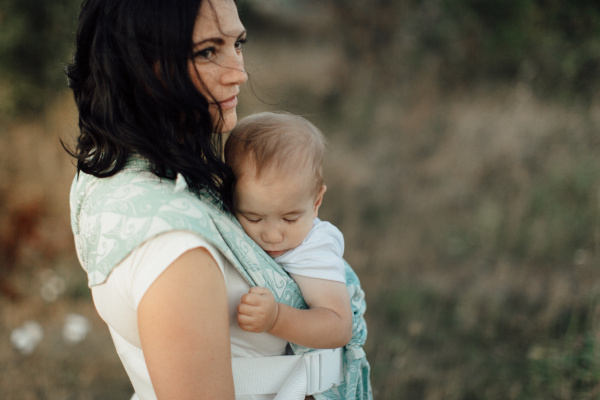The Postpartum Handbook; mindful maternal self-care with the Alexander Technique
At present (2025) I'm still sending out my book proposal for the Handbook. Please find some links below with further information about the doctoral research I undertook about how women use the AT in the postpartum.
April 2025: new study published in Perinatal Journal of Education
Click here for the chapter in the book Perspectives on Midwifery and Parenthood, published by Springer, 2023, called Wellbeing and Early Motherhood. The AT is mentioned as a potentially helpful approach.
Click here for an interview about Study 1 findings.
Publication in the journal MIDWIFERY. Women's experiences of using the AT in the postpartum: "In a way, it's just as beneficial as sleep."
An interview about Study 2 findings. (A paper on this study has been accepted for publication in 2024/25 by the Journal of Perinatal Education.)
Click here for a video on a summary of the research findings.
This email address is being protected from spambots. You need JavaScript enabled to view it.
Podcast episode (70 mins) with Sarah Mayhan, Poised and Powerful Parenting.
A summary of the thesis' integrated discussion: psychological effects of the AT, a blog post by my colleague Henry George.
Becoming a mum (or having another baby) is life-changing and can be physically and psychologically challenging. This self-care handbook is based on research that took place at the University of Hull, UK looking at how women use the Alexander Technique in the postpartum. The rich research findings led to this book and will send women on a  practical and safe journey of self-care to benefit themselves, their baby and their family. The mother and her postpartum experience are at the centre of this illustrated spiral-bound handbook. The handbook shows in practical steps how learning Alexander Technique skills can create valuable personal resources to contribute to maternal well-being.
practical and safe journey of self-care to benefit themselves, their baby and their family. The mother and her postpartum experience are at the centre of this illustrated spiral-bound handbook. The handbook shows in practical steps how learning Alexander Technique skills can create valuable personal resources to contribute to maternal well-being.
Find out more about the Alexander Technique, here.

Who is the author? Nicola Hanefeld PhD
The book is work in progress and a book proposal will be submitted to literary agents in summer 2023.
If you'd like to be kept in the picture please use the newsletter subscription form on this page.
Chapter contents ... read here too
- an introduction to the Alexander Technique and a little bit of anatomy
- the working conditions of the postpartum
- 'coming back to yourself' to counteract a sense of stress
- awareness as a skill in mindful motherhood for your well-being
- tiredness and exhaustion; that's how it is sometimes
- tussling with a maternal sense of duty - how do I really feel?
- yes, it's difficult taking time for constructive rest during the day
- holding a baby while feeding without shoulder, neck or back tension
- carrying your baby (in a sling or otherwise) without back pain
- enjoyable and comfortable pram-pushing
- adapting with ease to your new family dynamics (partners, dads)
- your calm relationship with the baby
- keeping up your social contacts
- taking exercise and being kind to yourself
What some study participants said about the online self-care package piloted during the research. The Handbook will be based on these findings.
‘Prior to taking part in the study, I was always doing something I thought I needed to do. It allowed me to slow down and appreciate being in the moment
One woman realised ‘how important it is to really look after myself and do it very consciously’.
The study gave another participant time to ‘reflect on the postpartum experience instead of just rushing around.’
‘… but when you do sort of manage to calm a little bit… you just feel stronger, a little more in control and I found I had more patience.’
‘…there was also like, a little pain over my shoulders and it helped me to remove a little bit of that tension. I was more conscious of the movement of my body…’

All podcasts with my colleague Sarah Mayhan in the US on the Alexander Technique can be found here.
Maternal self-care with the Alexander Technique - video
University of Hull: press release
Nicola's LINKS: further information about her work.
